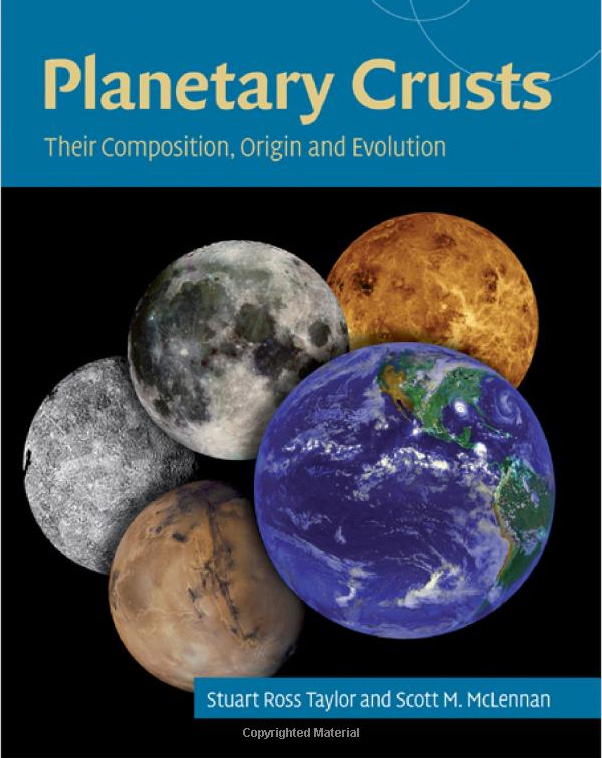Topics in Earth &
Planetary
Science: Planetary Crusts
Professor Brad Jolliff
Office: Scott Rudolph Hall Room 340
Course number: EPS 400 – Topics
in Earth and Planetary Science (Fall 2014)
Course Description:
Will examine the characteristics of crusts of the terrestrial planets,
the Moon, Vesta, and several satellites of the giant planets.
Will explore questions such as why and how do planets and moons develop
primary crusts? How have they been explored (samples, remote
sensing, and in-situ)? What are the major processes that affect
planetary crusts and how do they operate? Will consider new data
from MESSENGER for Mercury, MER and MSL data for Mars, and Dawn for
Vesta, as well as established data for the other planets and
moons.
Credits: 3, taught via three
one hour lectures per week or two 1.5 hour lectures per week
Prerequisites: EPSc 352, Earth
Materials, or permission of the instructor
Textbook: Planetary Crusts,
Taylor and McLen nan, Cambridge, 2009
nan, Cambridge, 2009
Supplemental Reading from
recent papers and publications, e.g., The Martian Surface, edited by J.
Bell; selected readings from Planetary Surface Processes, H. Jay
Melosh; and recent papers on recent findings from MER, MESSENGER, and
Dawn.
Course requirements:
2 examinations, tbd (may be take-home writing assignment)
Term project with presentation (each student takes a mission and
makes the case for extended mission, with class as the review panel;
written component, see syllabus)
Class participation
Homework assignments
exercise, others from Melosh)
Class time and location:
Tuesdays & Thursdays 2:30-4:00 pm, Scott Rudolph Hall Room 184
Syllabus
 nan, Cambridge, 2009
nan, Cambridge, 2009